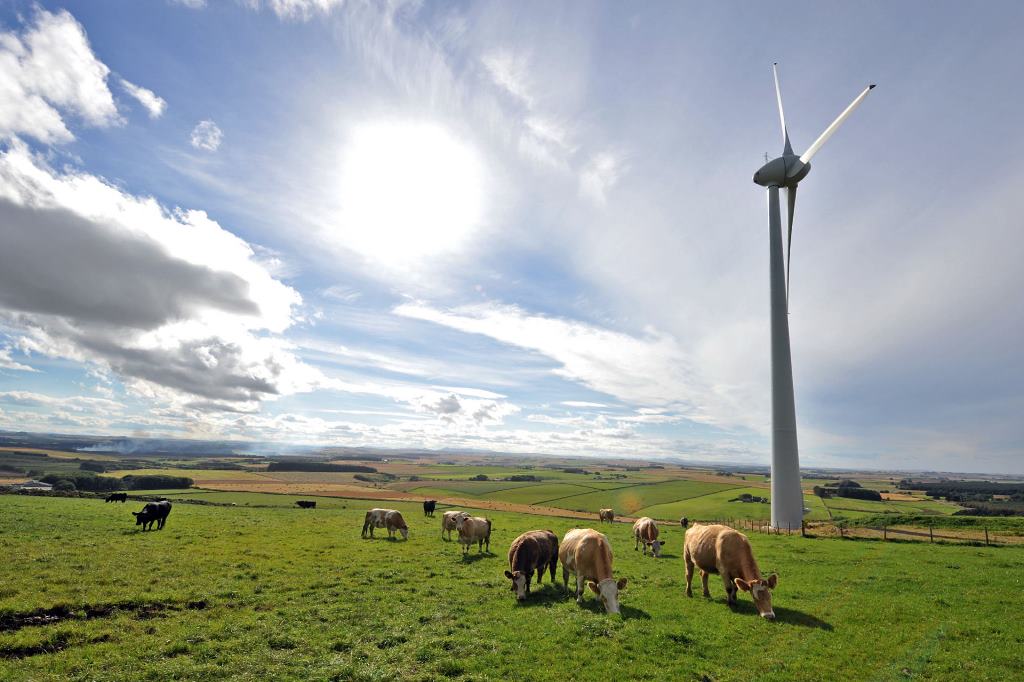
The farming press is a key source of information for farmers interested in novel technology such as renewable energy, social scientists at the James Hutton Institute have found.
Melf-Hinrich Ehlers, applied economist at the Institute’s Social, Economic and Geographic Sciences group and co-author of the study, said researchers looked at renewable energy coverage in the UK farming press over a 33 year period, from 1980 to 2013.
“We found that wind energy is covered most extensively by the farming papers, followed by bioenergy more broadly, in particular liquid biofuels and anaerobic digestion. Photovoltaic technologies have also had substantial coverage in the past five years. In total we identified 2195 articles.
“Policy and business stakeholders are often featured in renewable energy articles, which suggest that they could influence overall messages on renewables in the farming press.”
The researchers found that, generally, farming media attention cycles shows distinct patterns: first general availability of technology or effectiveness of support policy is suggested sporadically; then for a short period of time opportunities are suggested optimistically; then opportunities are scrutinised over an extended period with increased attention to policy, financial, technological and social acceptance problems and to a lesser degree potential solutions.
Later, in some cases problems become settled or it is suggested that there are no opportunities – in both cases attention declines. Finally the renewable energy technology is only covered sporadically as generally working or failing.
Dr Lee-Ann Sutherland, also from the James Hutton Institute and co-author of the paper, said the study is relevant to farming stakeholders, as it shows ways in which farmers and decision makers can be influenced by the farming press.
“This research demonstrates that different information is available to farmers on particular technologies, depending on when they take a serious interest – the ‘early adopters’ receive positive messages about opportunities and practical ‘how-to’ information.
“Farmers who take longer to consider particular options will find that the press coverages emphasises the controversies and challenges, or has stopped reporting because there are no novel stories to tell,” she commented.
The study Patterns of attention to renewable energy in the British farming press from 1980 to 2013 is available from the journal Renewable and Sustainable Energy Reviews.
